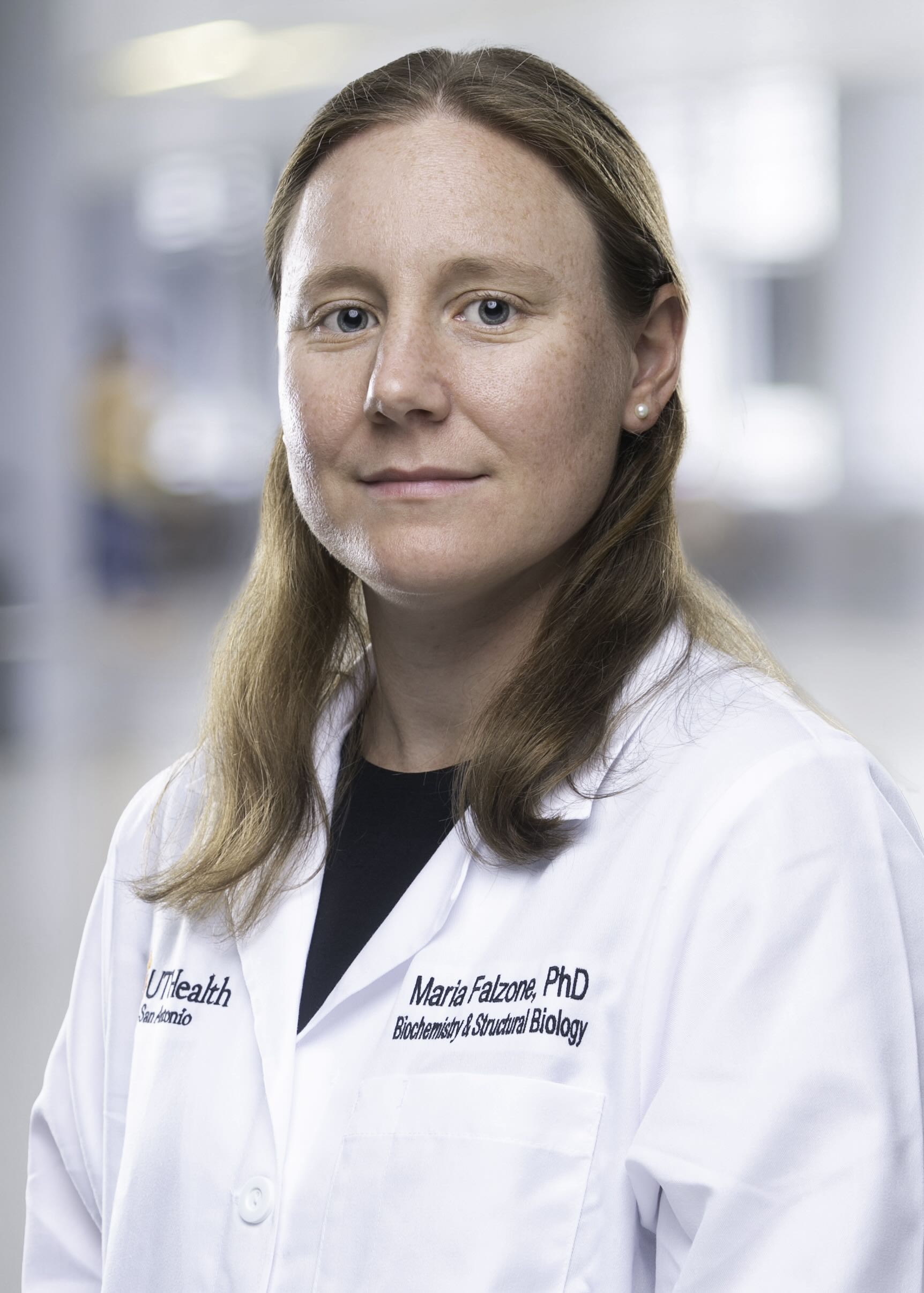The University of Texas Health Science Center at San Antonio (UT Health San Antonio) has been awarded $1.25 million by the Max and Minnie Tomerlin Voelcker Fund to support research projects being conducted by the institution’s early career investigators.
Voelcker Fund Young Investigator Awards
The Voelcker Fund Young Investigator Award will fund each recipient’s researcher project and will be allocated over three years to support the institution’s early career investigators conducting biomedical research. The 2025 recipients of the Voelcker Fund Young Investigator Awards and a brief synopsis of their projects are:
Maria Falzone, PhD, assistant professor, Department of Biochemistry and Structural Biology; member of the Greehey Children’s Cancer Research Institute and the UT Health San Antonio Mays Cancer Center

Project: Phospholipase dysregulation in breast cancer
Synopsis: Transmembrane receptors relay signals from outside to inside the cell, activating responses to various stimuli. Phospholipases (PLs) amplify this signaling and are essential for metabolism and cell growth. Dysregulation of PLs is linked to diseases like cancer.
Phospholipase D (PLD) enzymes, which cleave phosphatidylcholine, play a key role in mTOR signaling. This proposal aims to study how GTPases RhoA1 and Arf regulate PLD activity and their impact on breast cancer progression. By exploring the structures of PLD/RhoA1 and PLD/Arf complexes, the research will identify compounds that disrupt PLD signaling and assess the effects of disrupting these pathways on cancer proliferation and progression.
Oleg Klykov, PhD, assistant professor, Department of Biochemistry and Structural Biology

Project: ATPase in structure-based drug discovery against heart attack effects
Synopsis: Ischemia involves a lack of blood supply to an organ, such as during a heart attack. While restoring blood flow (reperfusion) is essential, it can also cause cell death and mitochondrial dysfunction, leading to ischemia-reperfusion injury. Mitochondria are critical for ATP production, and disruptions in their function can hinder recovery.
This project aims to explore mitochondrial dysfunction related to ATP synthase during myocardial ischemia and reperfusion using advanced biophysical and structural biology techniques. We will map mitochondrial membrane protein interactions and visualize changes in protein architecture under these conditions. The goal is to generate insights for developing innovative cardioprotective therapies, in line with the Voelcker Fund’s mission to address heart disease.
Lu Wang, PhD, assistant professor, Department of Biochemistry and Structural Biology; member of the UT Health San Antonio Mays Cancer Center and the Sam and Ann Barshop for Longevity and Aging Studies

Project: Functions of small Maf proteins in therapy-induced senescence
Synopsis: Hepatocellular carcinoma accounts for 90% of liver cancer cases and is a leading cause of cancer-related death worldwide. Early-stage patients can benefit from surgical treatments, but many are diagnosed late and miss these options. Systemic chemotherapy can induce cellular senescence as a tumor-suppressing mechanism, but it may also promote tumor growth.
Our research focuses on small Maf proteins and their roles in therapy-induced senescence and evasion, potentially contributing to cancer recurrence. The ultimate goal is to identify potential therapeutic targets for enhancing patient outcomes.


